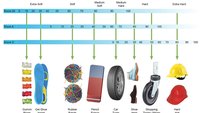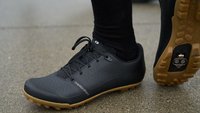
Race Face’s Demise
Many people now know the broad strokes of the demise of Race Face; as of March 12th, 2011 Race Face Components Inc. and Race Face Holdings were officially in receivership. Employees were given little notice about what was happening and the business stopped operating immediately. Nothing can happen with the company for 45 days from that date – until April 26th by my calculations – so most staff will likely have found other employment, making it virtually impossible for the company to be sold as a going concern. This means Race Face’s remaining assets, including the name, will be broken up and sold to the highest bidder. There’s likely nothing that can be done at this point to avoid that outcome. It’s a sad end for a company whose products had become synonymous with innovation, quality and durability. All the riders we at nsmb.com have talked to have a favourite Race Face product they can remember and all are sad to see the company’s first act come to a close.
For those of us on the outside looking in, the mystery is how it could have come to this. Reports from inside the company toward the end indicated that things were in some respects going better than ever. Race Face’s component, soft good and armour sales through Canadian outdoor goods retailer Mountain Equipment Co-op were a success, new products were being well received and with solid orders on the books, it looked like 2011 was going to be a banner year – maybe even a record for revenue. These are not the sorts of things you generally hear about a company that has been forced into receivership.
After Stuart Kernaghan’s article was published on March 15th, nsmb.com was contacted by a former Race Face employee who felt the story of the company’s demise should be told. Through that first contact, I spoke to several other former Race Face staffers and their description of the factors that lead to the company’s demise were consistent. Each one of them shared the view that the story should get out to the public.
Sources advised me that problems began when Race Face secured a $2.5 million operating loan eight to 10 years ago. They allege this loan was secured against, and obtained on the strength of, inventory that was either overvalued or completely worthless. “10 year old headset instruction sheets” was an example of stock used as collateral given by one former staffer. The employees I spoke to allege they were aware of the stock overvaluation and some had known about this for some time.
In a speech delivered to employees on March 10th, 2011, Race Face CEO Craig Pollack called the stock overvaluation a ‘systemic error’ that was recently discovered. He also stated that he voluntarily drew the bank’s attention to this error. I spoke to Race Face’s external accountant, who stated that the overvaluation was uncovered by Robert Shapiro – the internal accountant – who then took it to the external accountant. The external accountant told me that once Craig Pollack was informed of this situation, he was the one who drew the bank’s attention to it almost immediately. He went on to say that Pollack assumed the bank – Canadian-based ScotiaBank – would work with the company to remedy the situation.
According to former employees, when Race Face began a distribution arm in Taiwan, another portion of inventory used to secure the loan was sent overseas. This was also apparently a breach of covenant for the original loan agreement. Another breach allegedly occurred when the deadline for placing an aluminum order was missed and the company was unable to produce or fill orders for Atlas FR Cranks – one of the company’s biggest product lines – for four months. Because of this, sales targets weren’t met and this situation contributed to the bank’s increasing scrutiny of the company.
According to these same employees that nsmb.com spoke with, Race Face’s ability to pay creditors was becomingly increasingly compromised in recent months. Towels disappeared from the bathroom because the laundry service wasn’t paid and creditors like local frame builder Chris Dekerf (who is owed $7,000) got nowhere with their inquiries. Race Face employees were not alerted to the seriousness of the situation and were told to continue putting business expenses – including airfares to Taiwan and hotel rooms to the tune of thousands of dollars – on their personal credit cards. It appears now that employees will not be reimbursed for these expenses – up to $20,000 for some former staffers. Some employees had hardly taken a vacation day in 10 years and they will receive no compensation for that time.
One former RF staffer told me that toward the end employees traveling abroad were doing so without travel or medical insurance because the premium cheques to cover these policies were bouncing.
Unlike employees in Canada, who were informed in person by Craig Pollack of the pending receivership, Race Face’s Taiwanese division and the employees there, according to several sources both here and in Taiwan, to this day haven’t been informed about the receivership or that their jobs would be ending. Apparently, some of these employees had been with the company for 15 years.
When a foreign company comes to do business in Taiwan, a Taiwanese citizen is required to vouch for the company by putting his or her chop (an engraved stamp with the person’s Chinese name) on official documents. This essentially means that this person can be held liable for losses incurred by the company.
The employee whose Chop was provided for Race Face – who was diagnosed with cancer not long ago and has been receiving chemotherapy treatments – may be on the hook for as much as half a million dollars of Race Face debts incurred in Taiwan.
I was told that once the bank became aware of this situation it was still willing to come to some sort of arrangement to save the company – realizing it would be worth more if it could be sold as a going concern rather than one that had ceased to operate. Sources informed me that one of the bank’s proposals involved Pollack and two of his partners partially repaying the original operating loan, as well as Pollack taking a substantial pay cut.
One Race Face source alleged that some time ago, Craig Pollack made himself a contractor rather than an employee of the company so his salary no longer had to be approved by the board of directors. Instead, Pollack paid himself and at least two of his family members consulting fees.
Another partner was alleged, by a Race Face source, to be collecting a consulting fee of $6,700 a month. None of the employees nsmb.com spoke to could provide any information about what services this partner provided to the business in return for the consulting fee.
More than one former Race Face employee nsmb.com spoke to alleged that the fees collected by Pollack often added up to between $30,000 and $40,000 a month – or even more when cash flow was good – and that Pollack’s total yearly compensation was in the neighbourhood of $400,000.
More than one source has alleged that Pollack rejected a proposal from the bank to keep the company operating that would have seen his compensation set at $150,000 a year – or $12,500 a month. He was said to have responded to this proposal by saying, “Frankly, it’s not worth it for me to come to work for that little.”
Despite all these allegations, the Race Face sources I spoke with reported that they maintained their loyalty to the company to the end and felt a palpable sense of loss at the company’s demise. One said the drive in to work on the final day “like driving to a funeral.”
Several sources report that Craig Pollack plans to start a new business shortly. Apparently, this planned venture will again focus on the bike industry but will start with protective gear as their core product line.
nsmb.com was in contact with Craig Pollack regarding every detail of this article and he declined to comment.
If you have any comment to make regarding the sad story of Race Face – or if you are a former employee yourself this is the place….







Comments
Please log in to leave a comment.